Mozambique: Military escorts re-introduced in Cabo Delgado - AIM
Mozambique: CREMOD’s mandate to discuss best decentralization model ends today – Carta
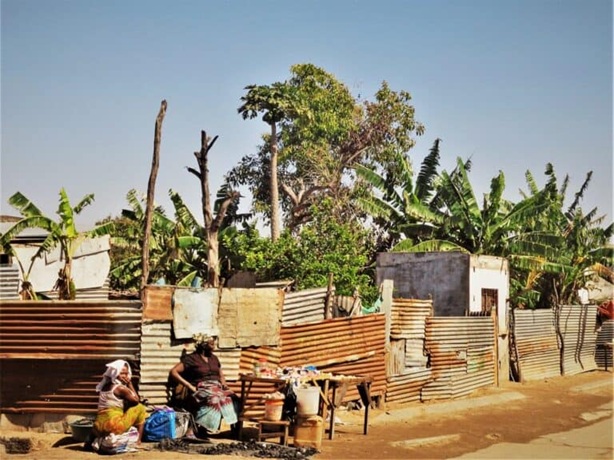
FILE - For illustration purposes only. [File photo: CIP]
The two-year term established for the operation of the Commission for Reflection on the Decentralized Governance Model (CREMOD) ends this Thursday, July 17. It was created in July 2023 by the Filipe Nyusi government to discuss the appropriate decentralized governance model for the country following the apparent failure of the current model, introduced in 2020. This model introduced two “provincial governments,” one led by the elected governor and the other by the provincial secretary of state appointed by the head of state.
Created by Resolution No. 21/2023 of July 17, the 23-member CREMOD replaced CRED (Commission for Reflection on the Relevance of Holding District Elections), established in March of the same year with the aim of postponing the district elections. Within 15 days, the aforementioned commission concluded that the political and financial conditions were not in place for Mozambique to hold its first district elections, which were scheduled for 2024.
CREMOD’s mission was, among other things, to evaluate the country’s decentralization implementation process; to assess various concerns regarding decentralization matters; and to analyse the chaotic territorial coexistence and functional coordination between central and provincial government bodies, municipal bodies, and decentralized district government bodies.
In fact, the conflict of powers between the provincial government and the provincial state representation was a major hallmark of the first five years of implementation of the current model. However, in an analysis published in August of last year, the Centre for Public Integrity also highlighted the lack of clarity regarding the budget allocation criteria for each province; and the lack of regulation of the specific tax regime applicable to the new decentralized governance model, among other problems hampering the process.
In his inauguration speech on January 15, 2025, President Daniel Chapo addressed the issue, assuring that, during his term of office, provincial secretaries of state would focus solely on oversight, monitoring, and evaluation of the state and central government’s tasks in the province, while executive tasks will fall to the Provincial Executive Council, led by the provincial governor.
“This eliminates unnecessary duplication, reduces costs, and improves service to the real needs of the people,” stated Chapo, who experienced first-hand the shared leadership role with the secretary of state when he served as governor of Inhambane province.
According to Article 9 of the resolution establishing CREMOD, the commission was required to submit a quarterly progress report to the government. At the end of its term (which is today), it must submit a final report with its main findings and recommendations.
However, eight quarters after its creation, not even a single public quarterly report has been released by CREMOD, an entity that operates with Mozambican funds. So far, it is known that it has submitted at least three reports, which are under lock and key.
At a press conference held on June 22nd, as part of the celebration of the 50th anniversary of national independence, the head of state assured that CREMOD was still active, despite the creation of the Technical Commission for National and Inclusive Dialogue, which is expected to discuss, among other topics, decentralization.
“CREMOD exists at this point. It is currently completing its report. Its mandate ends in July. I am absolutely certain that CREMOD will not end its mandate without a report and will bring proposals on the ideal model for Mozambique. The information I have is that, so far, the report presents four options,” said Daniel Chapo, in response to a question from ‘Carta’ about CREMOD’s place in the inclusive political dialogue, which began last March.
CREMOD’s members include the Minister of Justice and Constitutional Affairs (who coordinates the group); the Minister of State Administration and Civil Service; and the Minister of Finance. Also part of the group are Aguiar Mazula; Lourenço do Rosário; Jamisse Taímo; Ericino de Salema; Augusto Paulino; Joaquim Veríssimo; Albino Forquilha; Américo Ubisse; Benigna Zimba; Dorinda Eduardo; Francisco de Sousa; Hipólito Patrício; Ismael Nhacucué; Ismael Mussá; Latino Ligonha; Mahomed Osman; Saíde Habibe; Saimone Macuiana; Sarifa Fagilde; and Virgínia Videira.



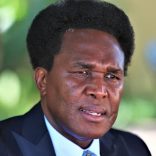
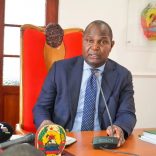
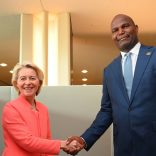

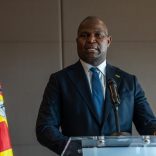




Leave a Reply
Be the First to Comment!
You must be logged in to post a comment.
You must be logged in to post a comment.